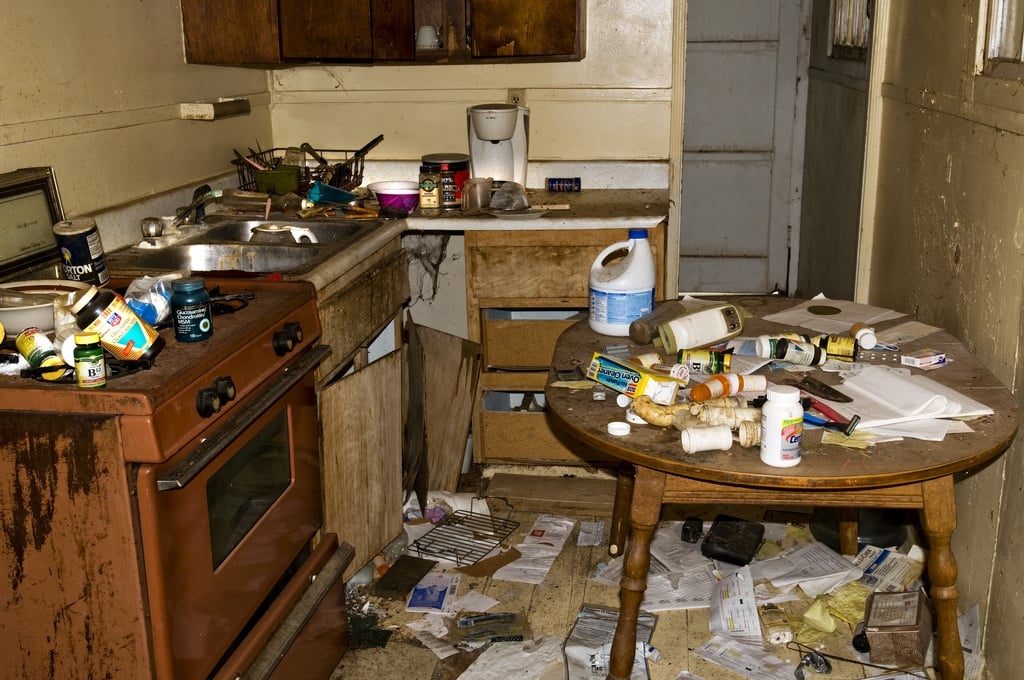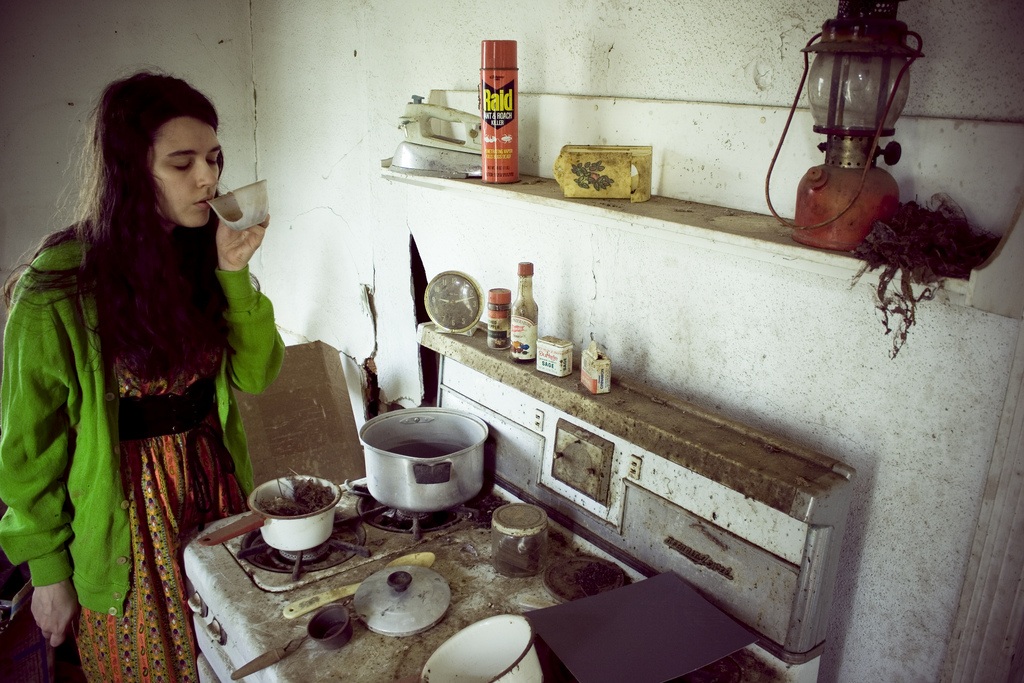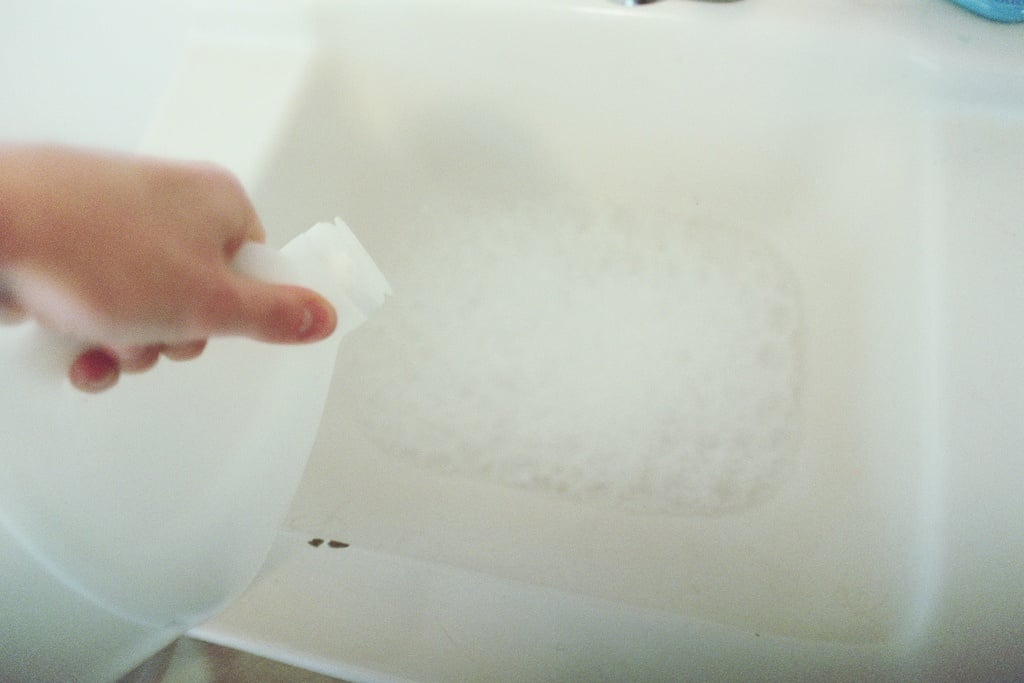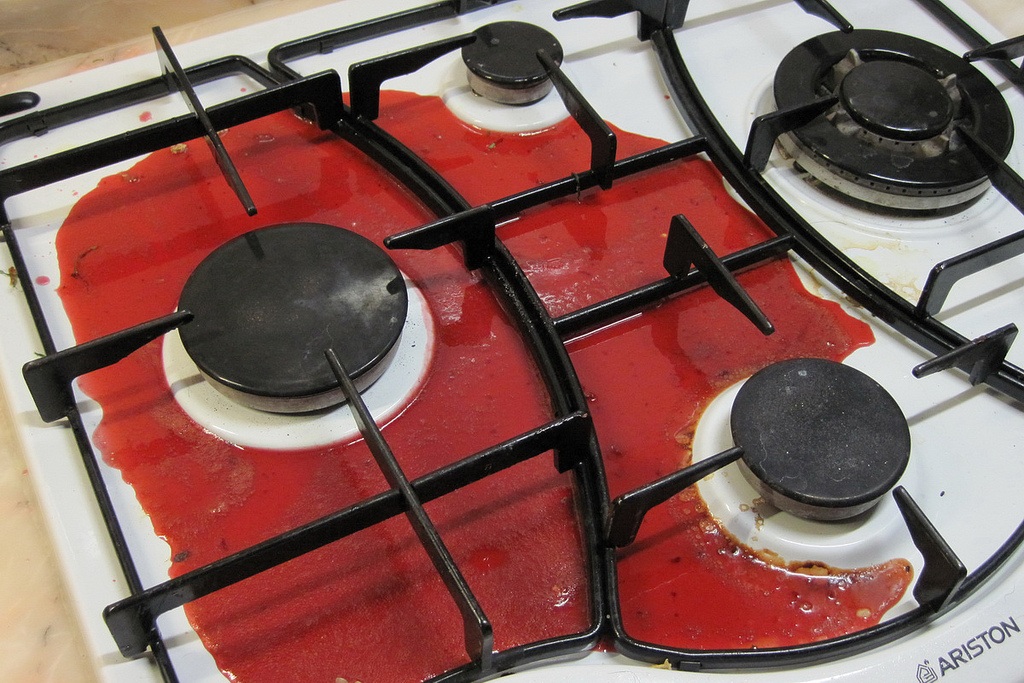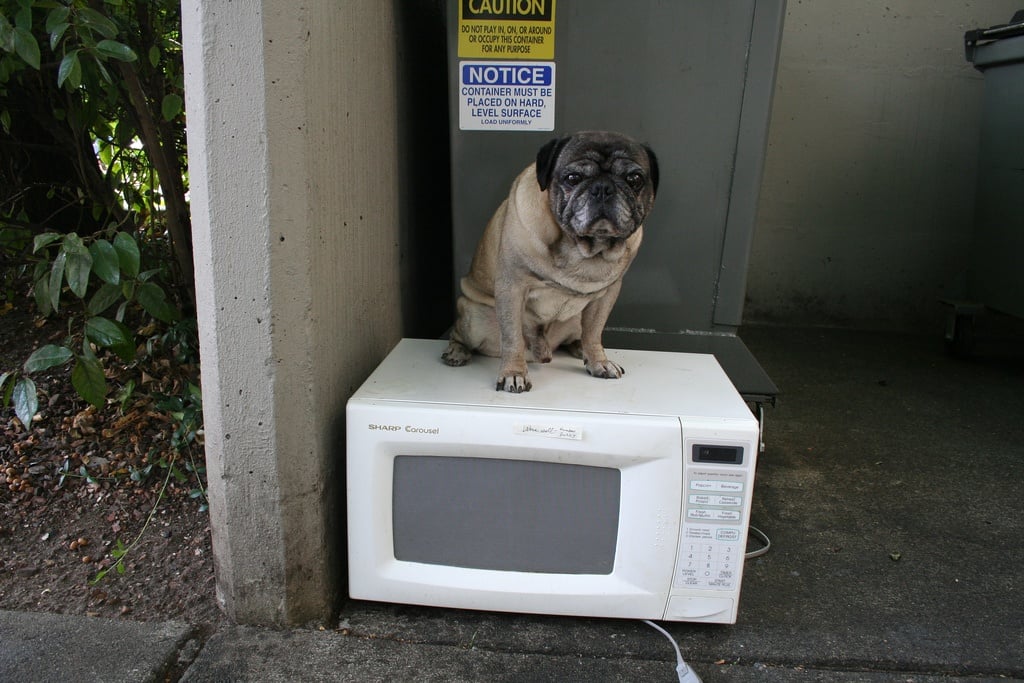Whether you have a housemate who never washes their dishes, a spouse who leaves items rotting in the fridge, or kids who decorate your walls with sticky hand-prints, chances are that there’s a mess-causing factor in your kitchen. Hell, it might even be you causing the accumulation of dreck—do you leave spills to coagulate on your counters? Do you scrub the stove top when tomato sauce drips all over it? Whatever the cause of your kitchen-filth, there are ways to tackle it that are effective, easy, and even eco-friendly.
1. Clean As You Go
Most of us have the nasty habit of leaving dishes in the sink to be taken care of at some magical, distant point in the future, and the same goes for spills and stains. Instead of leaving drippings to congeal, or dishes to rot in greasy water, take care of them as you work so they don’t accumulate.
If you’ve chopped various ingredients for a recipe and the dish is now simmering merrily on the stove, wash some of the dishes. Unless you’re making risotto or something else that requires constant coddling, you can leave it be for 20 minutes and clean up a bit. The more tidying you do as you work, the less you’ll have to do at the end of the meal: no-one wants to clean a mountain of pots and pans when they’re in food-coma mode.
2. Baking Soda, Salt, and Vinegar
No, this isn’t the basis for a really revolting salad dressing; it’s a list of the three main cleaning products you need for a sparkling clean kitchen. I add tea tree oil and lemon to that list as nice things to have, but they’re not absolutely vital.
Baking soda is ideal for scrubbing stains off counters, and for scouring stainless-steel sinks to a high shine. It does leave a white film if not rinsed properly, so be sure to wipe surfaces with a wet cloth after you’ve cleaned them.
Wipe down all your counters with undiluted white vinegar a couple of times a week to disinfect them, and use a 1:4 ratio of vinegar-to-water to wash your floors with as well. You can use a mildly diluted vinegar spray to clean any glass in your kitchen, and adding a few tablespoons of this sour wonder-liquid to a sink-full of dishwater will help cut through stubborn grease.
3. Salt Your Spills
If you spill something on your stove top, toss a handful of salt on it: the salt will absorb most of the liquid in the spill, and it’s abrasive enough that it will help to scour away any baked-on mess once the area is cool enough to clean by hand. Use baking soda to scrub off whatever’s left after the salt scrub has been wiped away—you can use an old toothbrush to scour crevices and hard-to-clean spots. Just be sure to wipe everything well with a damp cloth so you don’t end up with filmy white residue later.
Keep Your Microwave Lemony-Fresh
Have you noticed that the insides of most microwaves are spattered with stains? This happens when liquids or saucy dishes are heated up without lids on, so they end up splattering droplets all over the place. These are easy to clean if caught immediately, but if you don’t do so and use the thing every day to reheat everything from coffee to entrees, those little droplets will cling to the interior walls like bad exes.
The best way to get these driblets to release their hold is to steam them off: fill a microwave-safe shallow bowl with several lemon slices, and then fill 3/4 with water. Heat this on “high” for 4-5 minutes, use oven mitts or tea towels to remove the bowl without burning yourself, and then wipe down the now-softened stains. They’ll come right off, and your microwave will smell fantastic for about a week, as long as you don’t nuke fish or durian in it.
5. Put Baking Soda in the Trash Can
This is another trick that can work absolute wonders to reduce vile odours in the kitchen. The next time you take out the trash, give your kitchen garbage can a solid wash—first with dish soap, and then with a vinegar/water rinse. Once the interior is completely dry, sprinkle a few tablespoons of baking soda at the bottom before putting in a new garbage bag.
The dry soda will absorb any liquid that may leak from the bottom of the bag, and will trap any gross smells that may be floating about. Just make sure to wash out the used-up soda every few weeks and replenish it with fresh powder, or else it’ll get stale and start to stink.

